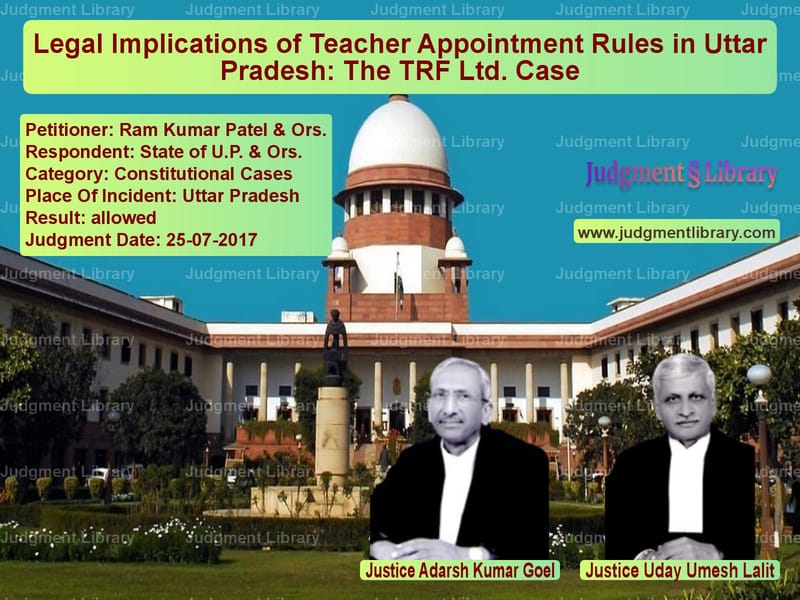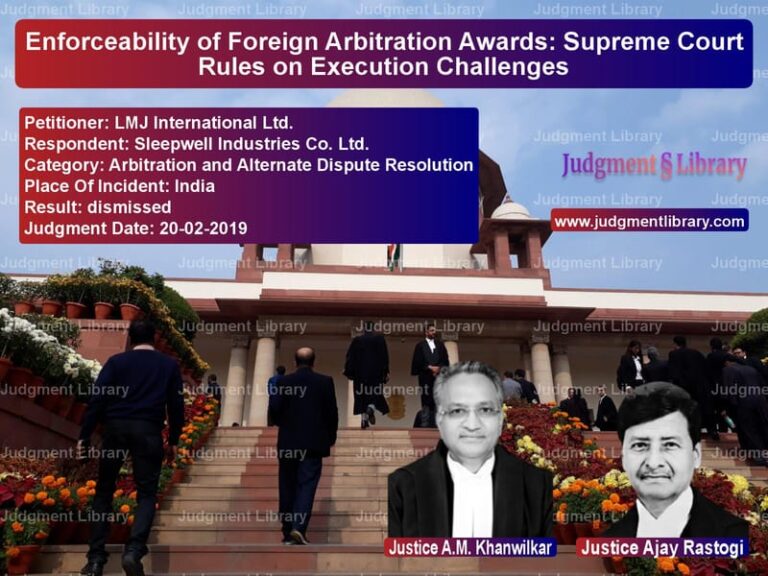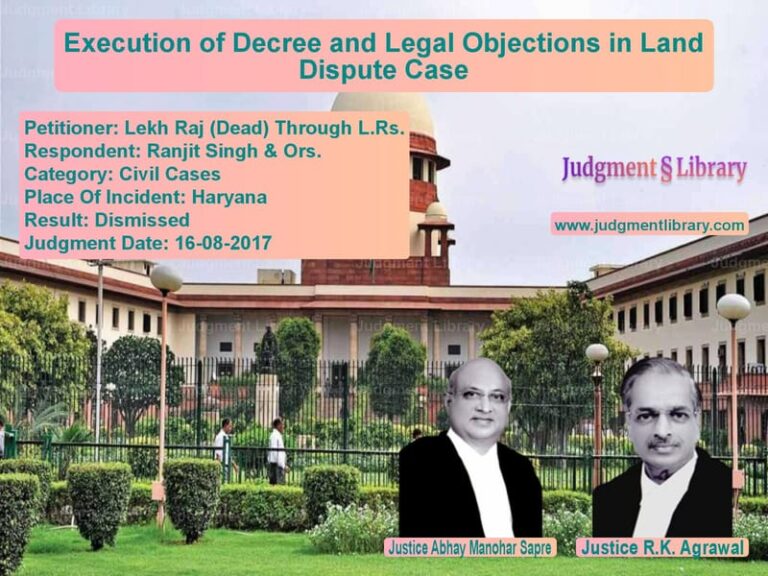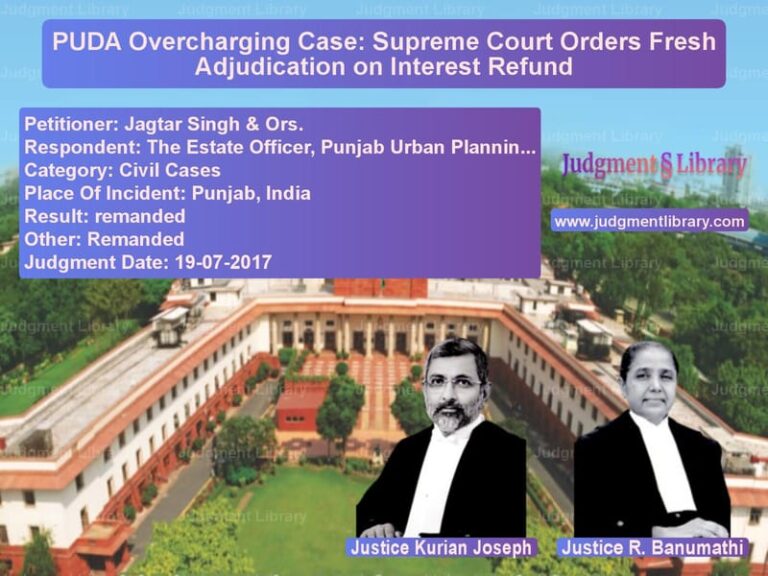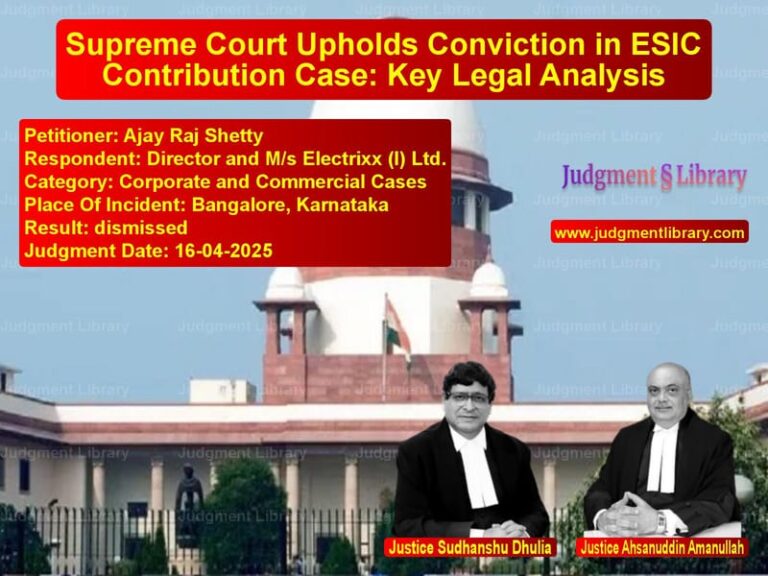Legal Implications of Teacher Appointment Rules in Uttar Pradesh: The TRF Ltd. Case
The case of Ram Kumar Patel & Ors. v. State of U.P. & Ors. revolves around a significant legal question about the conflict between state rules and central guidelines regarding the appointment of teachers in Uttar Pradesh. Specifically, the matter focuses on whether the state rules, as amended in 2012, conflict with the National Council for Teachers’ Education (NCTE) guidelines issued in 2011, and if so, the implications of such a conflict on teacher appointment procedures.
Background of the Case
The Uttar Pradesh Basic Education (Teachers) Service (16th Amendment) Rules, 2012, were challenged in this case on the grounds that they conflicted with the notification issued by the NCTE dated 11th February 2011. The 2012 amendment introduced a provision for arranging candidates based on ‘quality points’ specified in an appendix, which was challenged by petitioners arguing that this amendment violated the NCTE guidelines. The issue at hand was whether the state’s rules, being in conflict with the central notification, could continue to hold validity.
Legal Issues in Question
- Whether the U.P. state rules conflict with the central guidelines issued by NCTE.
- Whether the state’s rules can override the NCTE guidelines, especially in matters of teacher qualification and appointment procedures.
- Implications of the conflict between state and central regulations under the Indian Constitution.
Arguments of the Petitioner (Ram Kumar Patel & Ors.)
The petitioners argued that:
- The NCTE guidelines were mandatory, and any conflicting state rule should be struck down on grounds of repugnancy under the Indian Constitution.
- Since the NCTE’s guidelines, specifically the provision on weightage to TET marks, were intended to be binding, the state’s deviation from these guidelines by introducing the ‘quality points’ system violated the spirit of the central notification.
- The U.P. rules should comply with the NCTE guidelines as they fall under the Concurrent List of the Seventh Schedule of the Constitution, meaning state laws must align with central regulations in case of any conflict.
Arguments of the Respondent (State of U.P.)
The respondents, represented by the State of Uttar Pradesh, countered by asserting:
- The NCTE guidelines regarding weightage to TET marks were not mandatory, as the NCTE’s jurisdiction was limited to laying down qualification criteria, not regulating the teacher appointment process.
- The 2012 amendments to the state rules were valid, and there was no repugnancy between state and central rules.
- The state’s rules regarding teacher qualifications and appointment were within the powers granted to the state under the U.P. Basic Education Act, 1972, and did not violate the provisions of the NCTE guidelines.
Supreme Court’s Analysis and Judgment
The Supreme Court, led by Adarsh Kumar Goel and Uday Umesh Lalit, evaluated the matter by considering the legal relationship between state and central laws under the Indian Constitution. The Court’s analysis included:
- The Court noted that the NCTE’s guidelines, including the provision for weightage to TET marks, were not mandatory, and that the state was allowed to make its own rules regarding teacher appointments within the framework of the RTE Act.
- The principle of repugnancy was discussed, and the Court ruled that since the NCTE guidelines were advisory and not binding on the state, the state rules could not be struck down for conflict.
- On the question of the 16th Amendment Rules, the Court observed that the introduction of quality points did not alter the basic qualification requirements laid out by the NCTE, and therefore did not constitute a conflict with the central notification.
- The Court referred to previous judgments, including Shiv Kumar Pathak v. State of U.P. and Shiv Kumar Sharma v. State of U.P., which had already addressed similar concerns regarding the validity of state rules and their relation to central guidelines. It was concluded that the state had the right to amend its rules without violating the NCTE’s advisory guidelines.
Conclusion
In a well-reasoned judgment, the Supreme Court allowed the appeals and set aside the impugned judgment of the Allahabad High Court. The Court held that there was no conflict between the U.P. state rules and the NCTE guidelines, as the guidelines were not binding on the state in the matter of teacher appointments. The state is therefore at liberty to proceed with the amended rules in accordance with law, without violating any constitutional provisions.
Don’t miss out on the full details! Download the complete judgment in PDF format below and gain valuable insights instantly!
Download Judgment: Ram Kumar Patel & Or vs State of U.P. & Ors. Supreme Court of India Judgment Dated 25-07-2017.pdf
Direct Downlaod Judgment: Direct downlaod this Judgment
See all petitions in Fundamental Rights
See all petitions in Constitution Interpretation
See all petitions in Legislative Powers
See all petitions in Judgment by Adarsh Kumar Goel
See all petitions in Judgment by Uday Umesh Lalit
See all petitions in allowed
See all petitions in supreme court of India judgments July 2017
See all petitions in 2017 judgments
See all posts in Constitutional Cases Category
See all allowed petitions in Constitutional Cases Category
See all Dismissed petitions in Constitutional Cases Category
See all partially allowed petitions in Constitutional Cases Category

